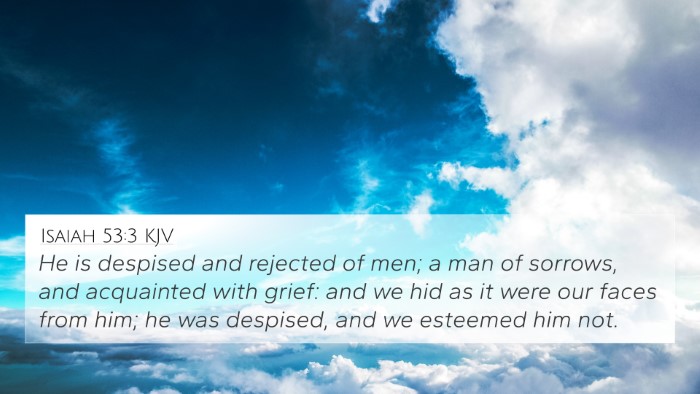Understanding Matthew 26:38
Matthew 26:38 states, "Then he said to them, 'My soul is very sorrowful, even to death; remain here, and watch with me.'" This poignant moment occurs in the Garden of Gethsemane as Jesus prepares for his impending crucifixion. Through various public domain commentaries, we can delve deeper into the meaning and implications of this verse.
Contextual Analysis
In this verse, Jesus reveals his profound emotional turmoil as he faces impending suffering. Matthew Henry notes that Jesus' admission of sorrow emphasizes his humanity. Despite being divine, Jesus experiences the weight of human suffering and the burden of sin he is about to take on.
Albert Barnes adds that this moment showcases Jesus' vulnerability, inviting his disciples to support him in prayer. The Garden of Gethsemane becomes a pivotal location symbolizing the struggle between divine purpose and human fear.
Adam Clarke points out that Jesus' plea for the disciples to 'watch' highlights the importance of vigilance in prayer. This verse serves as a call to be present during times of spiritual distress, not just for Jesus, but for one another in our own lives.
Thematic Connections
This verse connects with several key themes within the Scriptures, emphasizing sorrow, vigilance, and the human experience of suffering. The following themes and connections can be drawn:
- Human Suffering: Hebrews 5:7 - "In the days of his flesh, Jesus offered up prayers and supplications, with loud cries and tears, to him who was able to save him from death, and he was heard because of his reverence."
- Prayer and Vigilance: Luke 22:40 - "And when he came to the place, he said to them, 'Pray that you may not enter into temptation.'
- Emotional Depth: John 11:35 - "Jesus wept," illustrating that Jesus deeply feels the pain of those around him.
- Preparation for Sacrifice: Isaiah 53:3 - "He was despised and rejected by men; a man of sorrows, and acquainted with grief."
- Support in Trials: Galatians 6:2 - "Bear one another's burdens, and so fulfill the law of Christ."
- Isolation in Suffering: Psalm 22:1 - "My God, my God, why have you forsaken me?" showcasing feelings of abandonment during distress.
- Call to Watchfulness: Mark 14:38 - "Watch and pray that you may not enter into temptation. The spirit indeed is willing, but the flesh is weak."
- Divine Purpose in Suffering: Romans 5:3-4 - "Not only that, but we rejoice in our sufferings, knowing that suffering produces endurance."
- Invitation to Deep Reflection: Matthew 11:28 - "Come to me, all who labor and are heavy laden, and I will give you rest."
- Solidarity in Suffering: 2 Corinthians 1:5 - "For as we share abundantly in Christ's sufferings, so through Christ we share abundantly in comfort too."
Cross-Referencing Biblical Texts
Matthew 26:38 can be cross-referenced with various other Biblical texts that deal with themes of sorrow, support, and prayer:
- James 5:16 - Invoking the power of prayer among believers.
- 1 Peter 5:7 - "Cast all your anxiety on him because he cares for you."
- Philippians 4:6-7 - Encouragement to bring our worries to God in prayer.
- Psalm 34:18 - "The Lord is near to the brokenhearted and saves the crushed in spirit."
- Matthew 11:30 - "For my yoke is easy, and my burden is light," emphasizing sharing burdens.
Application and Reflection
This verse compels believers to confront their own sorrows and struggles while seeking support from others. As Jesus exemplifies, it is vital to acknowledge our vulnerabilities and to seek companionship during trials.
Moreover, the call to remain vigilant in prayer resonates with the Christian imperative to be interconnected in one's faith journey—supporting one another through both joyous and sorrowful times, reinforcing the communal aspect of spirituality.
Conclusion
Matthew 26:38 serves as a poignant reminder of Jesus’ humanity, inviting believers to reflect on their own experiences of sorrow and suffering. By understanding this verse through cross-references, believers can find comfort and strength in a comprehensive Biblical context.
For effective Bible study, utilizing tools for cross-referencing can provide deeper insights into Biblical themes, offering a rich tapestry of understanding that enhances one's spiritual journey.

















